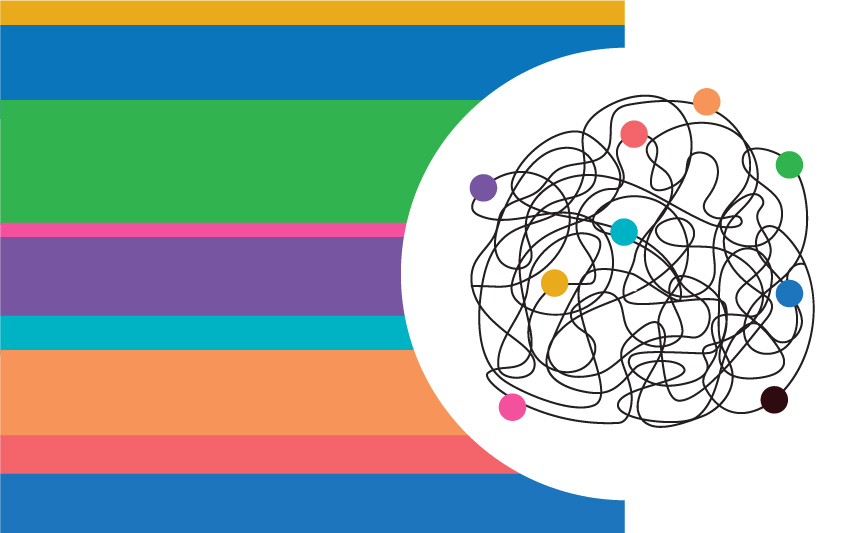We speak with James Ashton, author of The Nine Types of Leader: How the Leaders of Tomorrow Can Learn from the Leaders of Today
Mark Freebairn: Where did you get the idea for this book?
James Ashton: During my long career in journalism, I’ve had the opportunity to interview about 400 CEOs from every industry and not-for-profit sector. In the process, I started to see patterns. The Sellers emerged first, and then other groupings began to jump out. Before long, I had a corporate happy family of nine leadership types. At that point, I went back and interviewed individuals who exemplified these types in more depth.
MF: What makes some organisations better at training leaders and, in particular, Sellers?
JA: There are lots of examples of Sellers—leaders who have emerged from a sales and marketing background—like Tim Davie at the BBC and Gavin Patterson at Salesforce. Procter & Gamble trained leaders incredibly well in the 1990s. They taught people general management skills but brought them through the sales and marketing function and gave them great responsibility very quickly. That equipped a crop of leaders with great skills and self-confidence.
MF: Which of your leadership types was most successful during the pandemic?
JA: The pandemic is the greatest test this current crop of leaders will face in their careers. Given the financial shocks the system suffered, you might think the pandemic would have been great for Fixers. Fixers are the fearless firefighters who will jump onto the burning platform, stop the cash bleed, get everyone behind them, and mend the broken company.
But this was more than just a financial crisis, it was a human crisis. That’s why the Humans have really come for the fore. Humans are emotionally intelligent leaders who can admit their mistakes, are good communicators, listen, and are very self-aware. They understand the power of loyalty and that it is a two-way street.
It was the Humans who understood in the first few months of the pandemic that they had a duty of care to their workforce. They weren’t fretting that their workers were at home playing Space Invaders and being unproductive. They were wondering if their employees in tiny East London flats were ok.
MF: Do Fixers only excel with a short-term time horizon?
JA: The Fixer never lets a crisis go to waste. They use the opportunity to make a change.
There are examples of Fixers who are doing great things at companies we didn’t know were broken. Look at Ivan Menezes who has spent eight years at Diageo. He’s stripped out extraneous costs and thrown that money into marketing. At a certain point, ‘fixing’ just becomes ‘good leadership’.
But, in the main, a Fixers’ intervention is short and sharp. The challenge is how long they can keep stakeholders on side. There are scenarios where the Board who hired the Fixer gets cold feet.
Importantly, the Fixer has to make sure they’re not killing the patient. And you may not know that until a couple of years down the road. An accountant gave me this analogy: at what point, after you drive your car out of the garage and it conks out on the road, do you stop blaming the mechanic? How many miles do you have to go? That’s always the challenge for the Fixer.
MF: Are Alphas on the decline?
JA: In one sense,
Alphas are on the decline. Being “alpha” is now a pejorative term. The ‘banging on the table’, ‘force of will’ style of leadership is out of favour.
Leaders do develop different strengths and styles over time but probably not as much as they think they do. The best ones keep learning and keep listening. The Alpha trait that is consistent is that the leader needs to be able to command confidence and be confident in themselves.
MF: Given the increasing interest in purpose-driven organizations, should every leader be cultivating their inner Campaigner?
JA: Absolutely. We are increasingly asking, “what is this business here for?”. To cultivate your inner Campaigner, especially when you are facing outward as CEO, you need to study yourself and think about finding a purpose that fits the organization and fits you.
An example is Ajay Banga at Mastercard and his mission to bring one billion people into the global money system. It’s a brilliant fit because it’s something that will help his business while also helping people.
MF: If you inherit a business tomorrow, which of your leadership types would you like to see at the helm?
It’s another type I think we will see more of in the future: the Lovers. Coming out of this crisis, I’ll want someone to be in charge who is very passionate about the role.
JA: Lovers are very authentic and credible leaders. Examples include Joey Gonzalez, who was a fitness instructor before he climbed the ranks to run Barry’s Bootcamp, and James Daunt was a bookworm before he led Daunt Books, Waterstones and Barnes & Noble.
Finding leaders who love what they do makes sense. When you love what you do and bring that passion into work, it’s inspiring and infectious.
______________________________________________________________
Get in touch. Follow the links below to discover more, or contact our dedicated leadership experts from your local Odgers Berndtson office here.

Never miss an issue
Subscribe to our global magazine to hear our latest insights, opinions and featured articles.
Follow us
Join us on our social media channels and see how we're addressing today's biggest issues.



